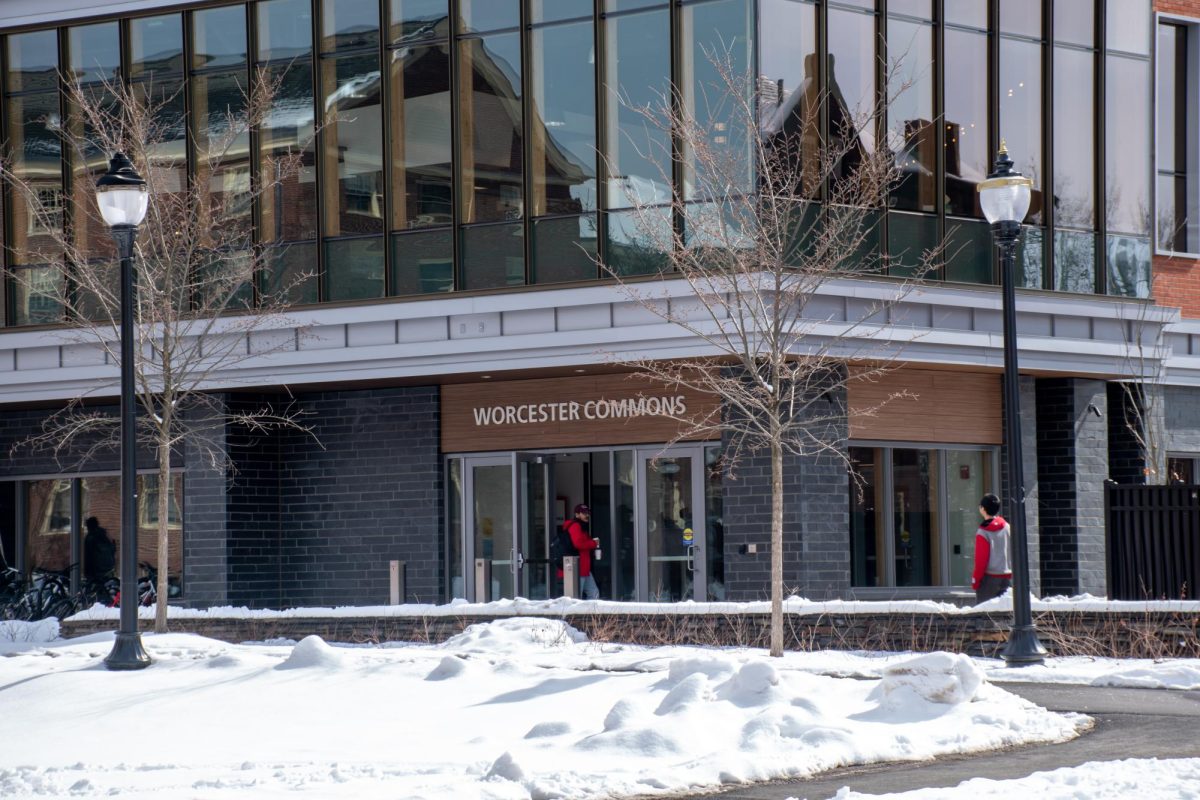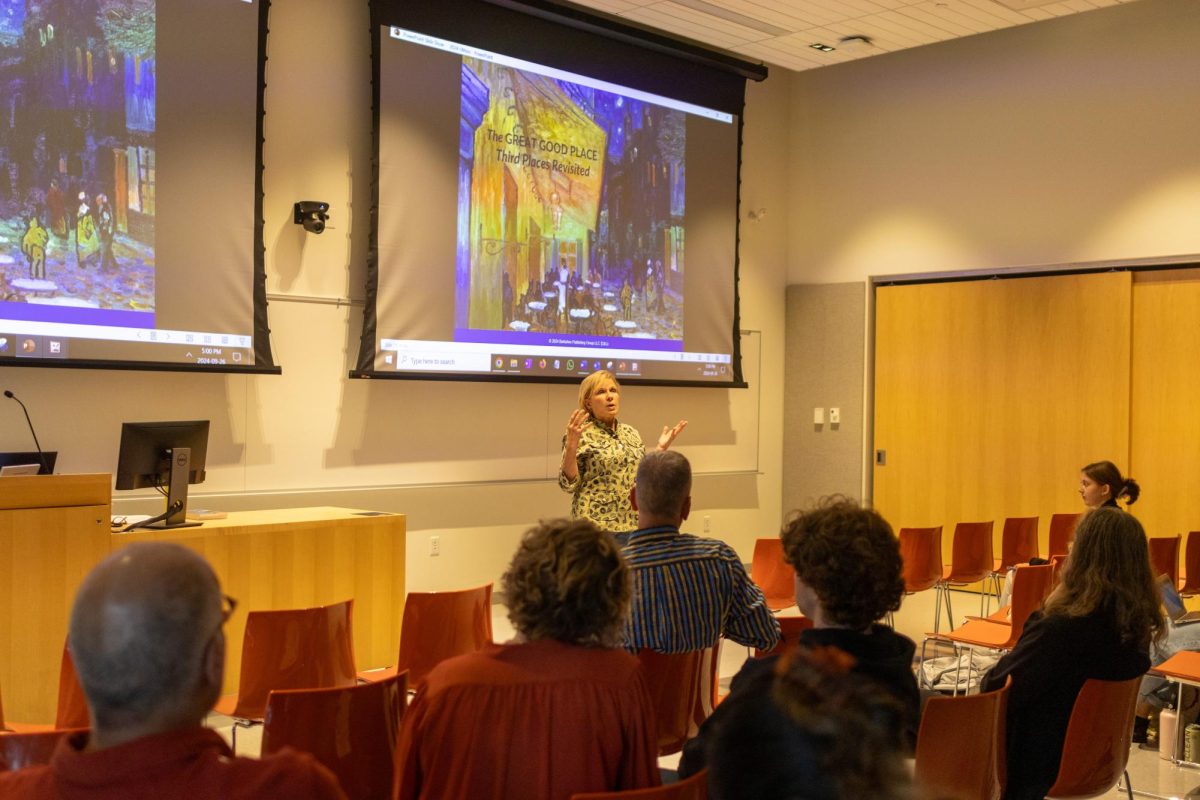
At the University of Massachusetts, the Office of Disability Services is charged with providing “full access” for people with disabilities. Under the Americans with Disabilities Act (ADA), universities in the United States are prohibited from discriminating against people with disabilities and in order to avoid this, must provide accommodations for students with disabilities to allow them to perform to their true ability level.
Larissa Hopkins, a consumer manager working at the Office of Disability Services and an Ed.D. candidate, said the office’s consumer managers have a complex, multifaceted job. Each student whom Disability Services recognizes as having a disability is initially assigned a consumer manager to serve as their advocate. Consumer managers work with students with a wide range of disabilities and often enormously varying needs including those with medical, learning, psychological and physical disabilities, Hopkins isad.
Consumer managers also assist with the intake process for students, determine accommodation eligibility, help connect students in need with resources to help them optimize their abilities across campus and help resolve discrepancies between students and faculty. They also work with University administration to help provide students with proper accommodations, for example getting approval for the waiver of an R1 or R2 requirement for a student with a profound math disability.
Hopkins said “invisible disabilities” like learning disabilities are most commonly misunderstood by faculty.
“When a professor sees someone in a wheelchair or who is blind, they tend to understand more readily that the person will need accommodations to allow them to succeed in class,” Hopkins said. “When they see someone who can hear and see and talk, but something is different in their brain, they have more difficulty understanding.”
In an extreme case, Hopkins said a professor once told her they didn’t believe learning disabilities existed.
Hopkins says that in working with faculty at UMass, she generally encounters three groups. Members of the first group are very knowledgeable about disabilities and understanding. Faculty in the second group, while well-intentioned, may cause students some “bumps in the road,” because they do not understand how to properly administer accommodations and what their responsibilities are under the ADA. The final group, which Hopkins says is relatively small, are actively opposed to giving accommodations and attempt to throw up barriers. In some instances, Disability Services must action and intervene on students’ behalf to resolve problems with resistant instructors.
In particular, she sometimes comes into contact with people who believe accommodations for students with disabilities are unfair and that they give some students an edge over others.
“If they could only see how hard people with disabilities work,” Hopkins said, “not everyone, of course, but a great many of my students spend so many extra hours studying, going to the learning resource center, going to their professors’ office hours for extra support; they aren’t socializing as much as other students,” she said.
Rather than giving an unfair edge, accommodations like extra time on exams “level the playing-field,” according to Hopkins, so scores reflect such students’ full knowledge.
Hopkins said the idea that extra time might give students an unfair advantage is also wrong-headed, because she feels students without disabilities do not do better on exams when allowed more time.
This fact appears to be widely misunderstood; in the New York Times’ “Education Life” section which appeared earlier this November, the paper reported in an article titled “Accommodations Angst” that when the “ACT and The College Board stopped flagging scores of accommodated students……incentive grew to game the system.”
Asked about whether she thought UMass needed to do more to educate students and faculty about disabilities and “ableism,” Hopkins said she feels the UMass administration is generally helpful, but universities in general tend to focus less on education in this area than they should. Sexism and racism tend to get more attention when universities perform diversity initiatives.
She believes this discrepancy also exists in the media; while recently news outlets have extensively covered the problem of bullying of gay teens, there has not been similar coverage of bullying of teens with disabilities. Hopkins believes that if studies were performed on the matter, levels of bullying of these two groups would be found to be similar. Personally, she says she has heard many reports from students who have been harassed because of their disabilities, including a case where the tires of a student’s electronic wheelchair were slashed.
Hopkins said some faculty who wish to make their classrooms more accessible for students with disabilities are sometimes frustrated that consumer managers are unable to disclose a student’s disability. Many students, Hopkins said, are uncomfortable disclosing their disability because of negative social stereotypes.
Hopkins said she recommends professors who want to make their classes more accessible, study universal design theory. The goal of universal design, Hopkins explained, is to provide a structure which allows all students to learn optimally. One example of a universal design practice is administering untimed tests for content, where time is not of the essence.
Hopkins said it is very important in her job and others like it at other universities to come from a social justice standpoint, rather than approaching the task solely with the goal of conforming to the law. She believes this is one of the strengths that Madeline Peters, the director of the Disability Services Office, brings to this position.
She recounted how, at a workshop for disability services personnel of various colleges in the area about issues which arise in conforming with the ADA, she was shocked to hear a disability service provider from another college make ableist remarks.
“They said that in the case of a student who couldn’t pass a course required by their major, perhaps that student should not be in that major,” rather than considering alternative accommodations that would allow the student to still meet the core goals of the major. Hopkins noted that the case of a student she worked with at UMass who, because of a medical disability that made it dangerous to stand for an extended period and could not pass a lab course, might be forced to change their major under this reasoning.
“When looking at it purely as a matter of following the law on the conservative side, they don’t have to think of individuals with disabilities as people,” Hopkins said.
Melanie Muller can be reached at [email protected].






